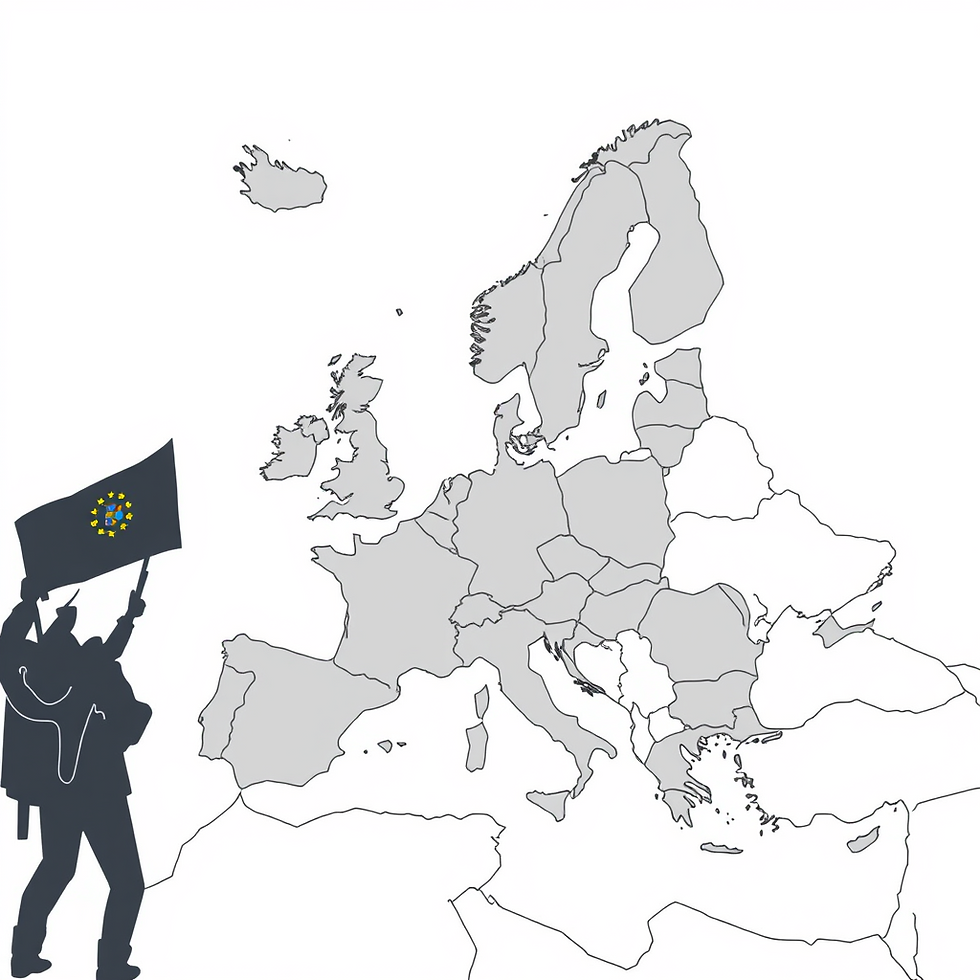
Transnational Repression in Europe: The Politically Charged Case of Oleksandr Hranovskyi
- cdlaweb24
- Aug 1
- 4 min read
Updated: Aug 2
The case of Oleksandr Hranovskyi, a former Ukrainian MP and reformist figure, now facing extradition proceedings in the United Kingdom, is a textbook instance of transnational repression carried out under the guise of legal cooperation. What began as a politically motivated prosecution in Ukraine has escalated into a European test case for the protection of human rights, judicial independence, and the integrity of extradition law under the European Convention on Human Rights (ECHR).
In 2022 Ukraine began to suspect Oleksandr Hranovskyi in connection with a criminal case originally initiated in 2015. In 2025 the UK commenced the extradition proceedings following an extradition request from. The UK prosecutor did not seek Hranovskyi’s arrest. Instead, both the prosecutor and Hranovskyi’s defence applied for bail, which was subsequently granted by the Westminster Magistrates’ Court.
Two leading international expert reports—by former European Court of Human Rights judge Paulo Pinto de Albuquerque and former UK Director of Public Prosecutions Lord Macdonald KC—have since exposed the flawed legal foundation and political motivation behind Ukraine’s request.
1. Arbitrary Detention and Fabricated Grounds
In his report, Professor Pinto de Albuquerque concludes that the Ukrainian arrest warrant and pre-trial detention order are arbitrary under Article 5 ECHR. He finds that the financial allegations concerning Oleksandr Hranovskyi are based on evidence that had already been discredited and invalidated by Ukrainian administrative and criminal courts—including the Odessa District Administrative Court, the Kyiv Pechersk District Court, and ultimately the Supreme Court of Ukraine.
Professor Pinto also exposes how covert surveillance techniques used in the case—including unlawful access to an iCloud account—violated Hranovskyi’s right to private life under Article 8 ECHR.
Hranovskyi’s defence obtained evidence demonstrating that the WhatsApp correspondence downloaded from the iCloud account had been falsified. This falsification was confirmed by internationally recognised experts from multiple jurisdictions:
• Israel: Prof. Dr. Colonel (res.) Gabi Siboni, former Director of the Military and Strategic Affairs Program;
• United Kingdom: Jan Collie, who was called to give evidence to the House of Commons’ Justice Committee on the disclosure of evidence in criminal cases; and Dr Paul Hunton who spent over 18 years with UK law enforcement working extensively as a technical specialist;
• Austria: Dr. Horst Eidenberger, a sworn and certified expert with general qualifications in computer science, mathematics, signal processing and statistics in Austria and the International Criminal Court (ICC), the Hague.
2. A Sham of Judicial Process in Ukraine
In their joint opinion, Lord Macdonald KC and Tim James-Matthews describe the Ukrainian proceedings as fundamentally deficient under Article 6 ECHR. Their conclusions are stark:
● The Ukrainian High Anti-Corruption Court (HACC) copied nearly 38% of its ruling directly from the prosecution’s petition. Dr Paul Hunton analysed both texts and concluded: “…multiple pages of identical text, formatting, punctuation, grammatical errors, spelling mistakes and further supported by the repetition of identical word patterns and phrases used there are overwhelming similarities between the two documents. Therefore, in my opinion, the only likely explanation for such exacting replication to be maintained between the two documents spanning over 13000 words is if the Court Ruling document was based on an electronic version of the Petition and that substantial sections of the Petition were copied to the Ruling, or an electronic version of the Petition was used as the base template to produce the Court Ruling ”;
● It failed to engage meaningfully with the expert evidence of falsification presented by Hranovskyi including both reports prepared by Ukrainian expert institution under the Ministry of Justice of Ukraine and expert report by renown experts from other countries;
● It dismissed concerns about the covert surveillance as “classified” without offering any legal or evidentiary response;
● And it refused legitimate defence motions, including challenges to the impartiality of the presiding judge.
The experts describe a system where judicial independence is compromised, procedural rights are denied, and the presumption of innocence is effectively reversed.
3. The UK’s Role: A Test of Democratic Credibility
Now, it falls to the British legal system to determine whether it will permit extradition to a country where the applicant faces a politically orchestrated prosecution, falsified evidence, and a trial process that cannot be called fair by European standards.
The UK, bound by the ECHR and its own Extradition Act 2003, is legally and morally obliged to refuse surrender if there is a real risk that the requested person would suffer inhuman treatment, arbitrary detention, or a flagrant denial of justice. In this case, all three risks are substantiated by unchallenged expert evidence.
4. Why This Case Matters for All of Europe
Oleksandr Hranovskyi’s case is not an isolated injustice. It is part of a wider pattern of abuse of legal mechanisms for political revenge—a growing phenomenon the Council of Europe identifies as transnational repression. States are increasingly using criminal justice cooperation tools (like INTERPOL notices, extradition requests, and mutual legal assistance) to pursue opponents, journalists, former officials, and dissidents abroad.
If democratic countries like the UK validate such politically motivated actions through extradition, it will send a dangerous signal: that international law can be hijacked, and that Europe’s system of rights is selectively enforceable.
Conclusion
The Cyprus Democratic Lawyers Association (CDLA) stands in solidarity with legal professionals across Europe who are resisting the normalisation of injustice. The Hranovskyi case is more than a bilateral extradition matter—it is a litmus test for the rule of law in Europe. We urge UK authorities and their European counterparts to stand firm in the face of political pressure and uphold the fundamental protections guaranteed by the European Convention on Human Rights.
Justice must never be outsourced to regimes that abuse it.
For further updates and legal analysis, follow the CDLA’s ongoing work on cases of transnational repression and judicial abuse.


Comments